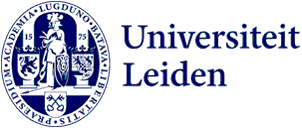
‘An internship can be very enlightening in helping you figure out where your interests lie’
Niels Broekman did an internship at the Ministry of Agriculture, Nature and Food Quality, where he worked on, among other things, biodiversity advocacy. After his internship, he decided to go in a different direction: ‘An internship can be very enlightening in helping you figure out where your interests lie.’
Where exactly did you do an internship?
‘I did an internship at the Ministry of Agriculture, Nature, and Food Quality, in the Environment and Cooperation cluster and the Green Finance team. There, I was involved in advocating biodiversity, nature and inclusiveness and ecosystem services in finance. I helped policy staff advocate on those different topics. For example, we would visit other ministries to try and break a lance for biodiversity.’

At what point did you think: this is where I would like to do an internship?
‘Early on, I wasn't sure where I wanted to work. I had applied to several ministries, and I also got invited for interviews at several ministries, but this ministry appealed to me the most, both because of its mission to bring about a greener society and also because I could start working there relatively quickly.’
Did you know beforehand what kind of tasks you would have?
‘I did have some kind of idea from my studies in public administration what working as a civil servant would look like, but the reality turned out to be pretty different from what I expected. That's not the university's fault, but perhaps also because of the podcasts I listen to, which talk about policymaking, for instance. Indeed, I had expected that as a civil servant you would discuss a lot of ideas. The reality was that I ended up in a very bureaucratic organisation. This makes it difficult to solve societal problems quickly.’
Niels elaborates: ‘At the ministry, for instance, I helped to write policy papers and for me, personally, that took some getting used to. They did not teach us such skills at university, so it really was a huge transition. At university, you have to pay a lot of attention to the academic aspect, at the ministry that isn’t very important.’
How did you deal with the differences between university and ministry?
‘I often wanted to write policy papers with a certain inherent style, with a lot of attention for the academic aspect. Only to be told that the analyses were fine, but that the reports needed to be condensed and more presentable. Instead, I added sources everywhere and wanted all choices to be justified, because I was afraid that certain details would be missing otherwise. The university is both an educational institution and an academic institution. As a result, it has to focus on not only academia but also on practice, which can sometimes make it difficult to know exactly what to focus on.’
Did the internship help you figure out which direction you want to take?
‘I’m planning to do my best to continue working in academia. The internship really confirmed for me that my heart is in academia after all. So, I’ve now started a PhD. The purpose of my internship was also to find out what direction I wanted to focus on. I’ve now realised that the academic world suits me best. So, an internship can be very enlightening in helping you figure out where your interests lie.’
Suppose there are more students who, like you, were unsure about which direction they want to take: what would you recommend to them?
‘I’d definitely recommend internships to those students. It’s only for a short period, say six months, and you get a chance to experience what it’s like in an organisation in a relatively easy way. If there are students who would like to do a PhD, like I’m doing now, I’d definitely recommend them to just send out as many applications as possible. You don't have to get the highest grades in order to be hired as a PhD student, as long as you can clearly demonstrate how you plan to shape your research. In the beginning, for example, I was quite nervous about that, but in my experience, you just have to go for it.’
Text: Abdelkarim Megaiz
